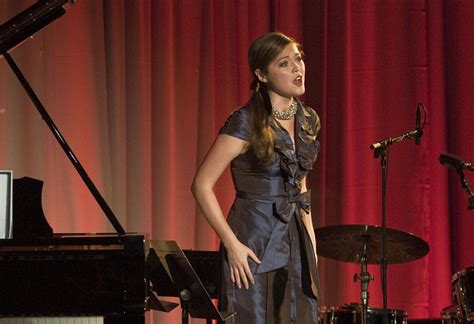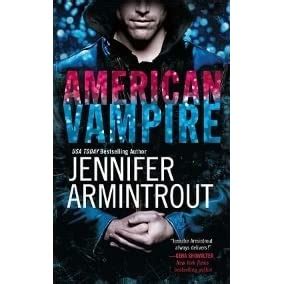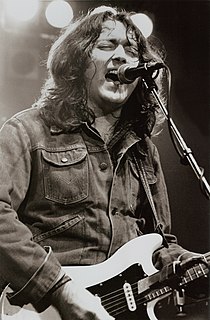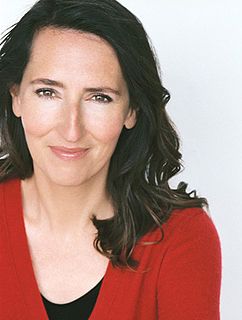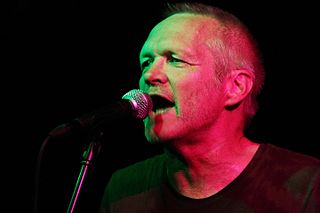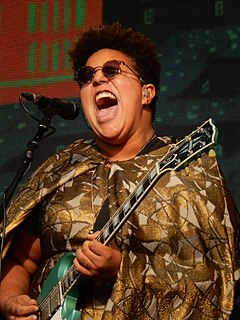A Quote by Cedric Bixler-Zavala
But although I appreciate our audience, we don't do things for them. It's all for us - we play really self-indulgent music.
Related Quotes
Playing live is much more natural for me. The instant reaction and the feedback from the audience is great for me. I really relish it. And if you play blues-based music, it's not really academic music or recital music. It really needs a bit of atmosphere and a bit of interplay and a bit of roughness, and you really get that with an audience.
When I'm in the studio, I write the music, I play the different instruments, I produce it, I arrange it, and it's a self-indulgent exercise. It's the way I make my music. And when I'm acting, I get to leave myself behind, which is a relief. I get to collaborate with a director; I respect the director's medium and all the actors and actresses. So at the end of the day, it's about a character and it's about a director's vision. It's a really good balance for being so intense and alone in my personal process of making music.
I like playing at public schools. I like when there's more of a diverse audience. I'll play wherever people want to hear my music, and I'll be glad and grateful for the opportunity, but I'd rather not play for a bunch of white privileged kids. I'm not meaning that in a disrespectful way; you go where people want to hear your music. So if that's where people want to hear me play, I'm glad to play for them. But I'd rather play for an audience where half of them were not into it than one where all of them were pretending to be into it, for fear of being uncultured.
When we are fully mindful of the transience of things - an impending return home from an overseas adventure, a graduation, our child boarding the school bus for the first day of kindergarten, a close colleague changing jobs, a move to a new city - we are more likely to appreciate [be grateful for] and savor the remaining time that we do have. Although bittersweet experiences also make us sad, it is this sadness that prompts us, instead of taking it for granted, to come to appreciate the positive aspects of our vacation, colleague, or hometown; it's 'now or never.'
From what I see, nowadays punk and anarchy are still connected with "fast loud music by smelly drunk chaos-people" and, yes, I know I'm over-generalizing here. So when the occasional venue still describes us The ex as "anarchopunk" that's a real bummer, since it attracts an audience that expects a kind of music - which we don't play - and it keeps away another audience that actually might have liked it when they would have come. That's a pity, for both them and us.
I think I'm really part of a whole generational movement in a way. I think a lot of other people since and during this time have gotten interested in writing what we can still call experimental music. It's not commercial music. And it's really a concert music, but a concert music for our time. And wanting to find the audience, because we've discovered the audience is really there. Those became really clear with Einstein on the Beach.
Through the music and words we, as the band The ex, express our thoughts and opinions and ideas. It is not always totally necessary for our audience to clearly hear and understand every line I sing. The power and impact, the positive energy of the music are as much part of the whole thing as the words. We are not trying to convert people, but we believe in our music and like to play it in front of other people, hoping that we can get them as excited as we are about our music.
Before making peace, war is necessary, and that war must be made with our self. Our worst enemy is our self: our faults, our weaknesses, our limitations. And our mind is such a traitor! What does it? It covers our faults even from our own eyes, and points out to us the reason for all our difficulties: others! So it constantly deludes us, keeping us unaware of the real enemy, and pushes us towards those others to fight them, showing them to us as our enemies.
You play with the audience, and they play back with you. They get into it, and then everybody gets into it. I don't want to be like a monkey on stage and just go through the motions because then it wouldn't be fun anymore. I just pay attention to the audience and appreciate the fact that somebody wants to see us. That gets me psyched.

